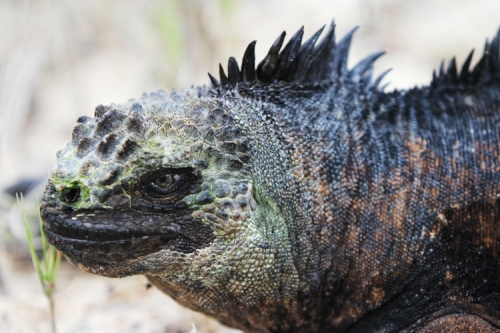Oyster reefs in North Carolina estuaries have collapsed over the last century, leading to the loss of important ecosystem goods and services they provide to the people in this state. Oysters provide critical nursery habitat for fisheries, biofiltration and shoreline stabilization. Their value as ecosystem engineers greatly outweighs their value as a fisheries commodity. However, efforts to restore and manage this critical habitat typically focus on increasing oyster harvests rather than on building healthier reefs.
Research conducted by biology doctoral student Pamela Reynolds examined strategies to enhance North Carolina oyster reefs. Reynolds is one of the 2011 Impact Award winners, an award given by UNC’s Graduate School to recognize research benefiting North Carolina.
Combining field and laboratory studies, Reynolds’ results indicate that reefs with a more intact food web and a diverse top predator community have greater oyster production. Top predators promote reef development by consuming smaller predators, which feed on juvenile oysters. Predator diversity, or increasing the number of different predator species such as large fish and crabs, may promote such top-down effects on oysters, leading to enhanced reef production.
Reynolds’ research suggests that promoting predator diversity is key for reef management, as well as for the success of other coastal restoration projects throughout North Carolina’s estuaries.
“Pamela’s research is truly novel and critically important to coastal conservation as our state’s marine ecosystems continue to be degraded by overfishing, climate change and habitat loss,” said John Bruno, Reynolds’ dissertation adviser.
Graduate student Impact Award winners work and study within a wide variety of fields — health policy, marine sciences, biology, social work, chemistry, and environmental sciences and engineering, to name a few. However, they all share the following attributes: intellectual curiosity, the capacity to work hard, and a commitment to apply their knowledge to challenges facing the people of our state.
The Impact Awards are privately funded through the generous support of the Graduate School’s Graduate Education Advancement Board (GEAB).
For more on the 2011 Impact Award winners, visit http://gradschool.unc.edu/student/awards/impact/2011.html.




